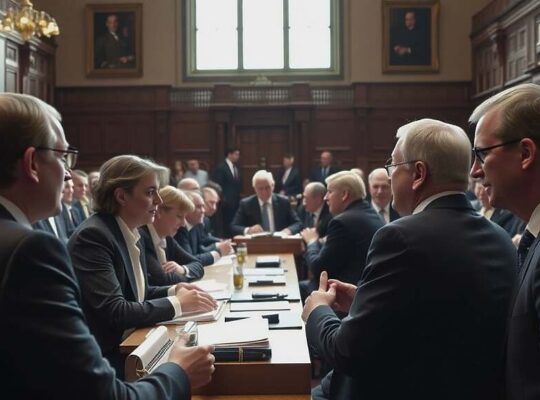A simmering internal debate is gripping the German Green Party, ignited by former co-leader Ricarda Lang’s sharp critique of Robert Habeck’s recent departure from politics and the broader strategic direction of the party. Lang’s remarks, published in the Handelsblatt, accuse Habeck of deliberately cultivating an image of relatable authenticity, a tactic she suggests is designed to foster a feeling of camaraderie rather than genuine connection. “Markus Söder” Lang stated, referencing Habeck’s own words, doesn’t engage in performative displays for lack of intelligence, but rather as a deliberate strategy.
The criticism extends beyond Habeck’s personal actions. Lang questioned the Green Party’s long-held approach of attempting to bridge societal divides through consensus-building and broad-based appeal. According to Lang, this strategy has proven insufficient to address fundamental conflicts. “There are societal conflicts that cannot be talked away; they must be confronted directly” she asserted, implying a need for a more assertive and defined political stance.
This reappraisal arrives at a critical juncture for the Green Party, currently grappling with questions of direction and public perception. Lang expressed concern about the party’s ability to serve as a source of guidance and optimism, commenting that, “We are not yet far enough along to offer orientation and to be perceived as bearers of hope.
The critique also hinted at a potential fracturing within the party’s ideological landscape. While advocating for a clearer political position, Lang specifically cautioned against engaging in divisive “culture war” topics such as gendered language, signaling a desire for the party to find a more grounded and focused approach to policy-making. The public airing of these disagreements raises significant questions surrounding the Green Party’s internal cohesion and its capacity to navigate the complexities of German politics going forward. The debate underscores a growing sense that a period of introspection and strategic recalibration is necessary for the party to regain its perceived relevance and public trust.












